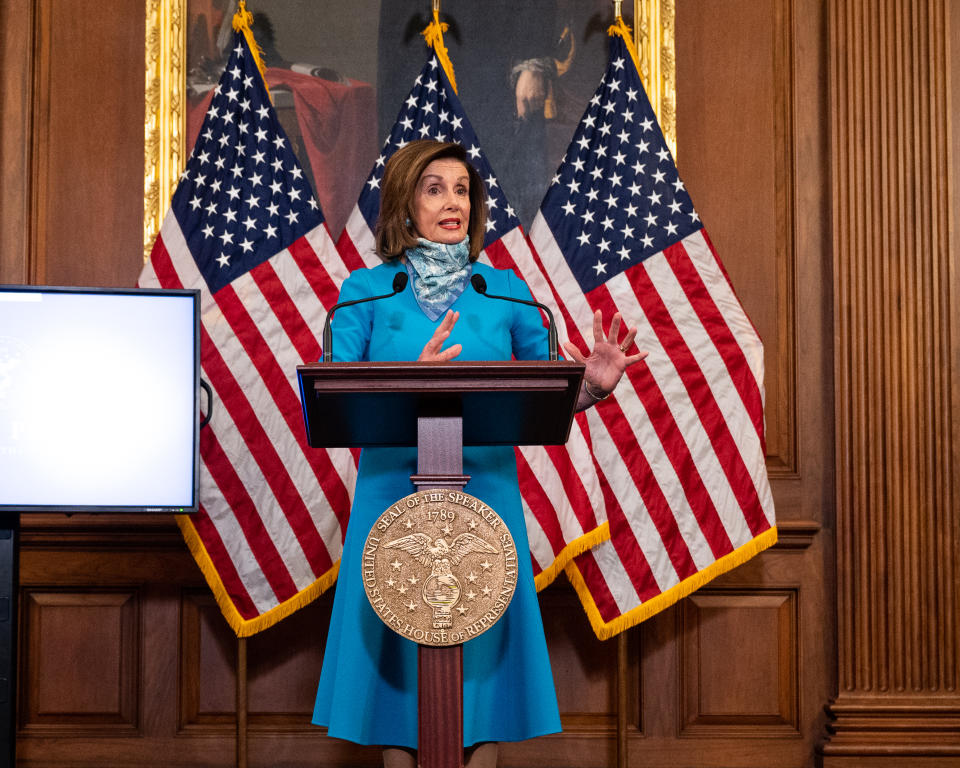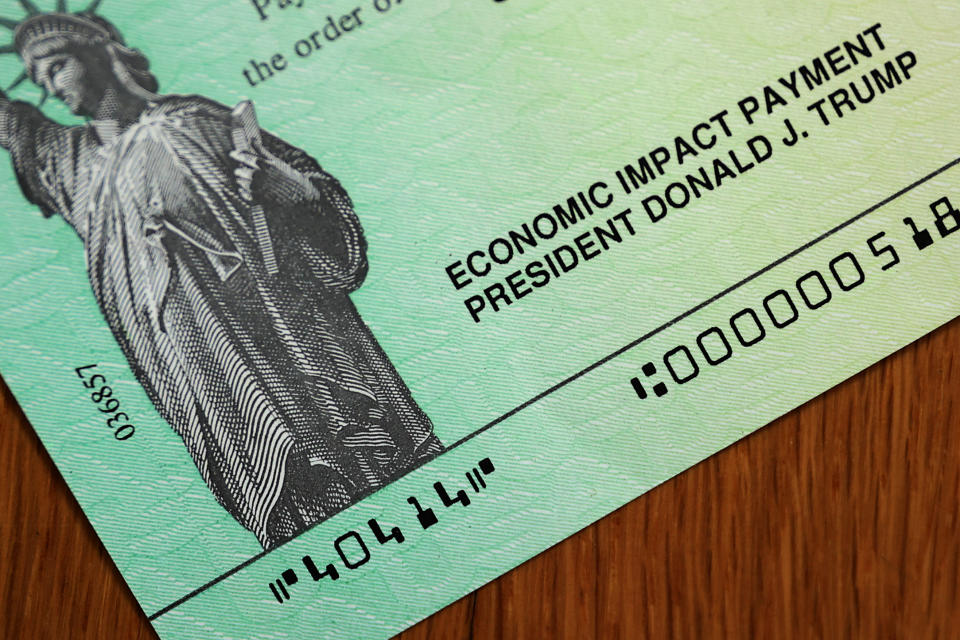Coronavirus stimulus checks: What would need to happen before a second round
House Speaker Nancy Pelosi unveiled her plan for another stimulus package this week, this one costing more than $3 trillion. The proposal, called the HEROES Act, includes a second round of direct stimulus checks to Americans, and has already been dismissed by Republicans as a liberal wish list,
The bill calls for another $1,200 to qualifying Americans, similar to the Economic Impact Payments in the CARES Act. It does have more generous provisions for up to three dependents, $1,200 for each child. The credits would begin to phase out starting at $75,000 of modified adjusted gross income ($112,500 for head of household filers and $150,000 for joint filers).
We “have the direct payments,” Pelosi said on MSNBC on Monday night to preview the bill, adding, “people are craving that.”
Some lawmakers, like Ohio Rep. Tim Ryan, had been pushing Pelosi to go even bigger. He had said that Democrats should push for checks for “multiple months moving forward.” Pelosi’s proposal only appears to include one round of checks.
But before the idea gets anywhere close to President Trump’s desk, weeks or even months of wrangling are ahead. Republicans have repeatedly brushed off Pelosi’s proposal, preferring instead a “pause” before negotiating another deal that could include controversial issues like funding the states to business liability to vote-by-mail, and the Paycheck Protection Program.
Weeks of negotiations ahead
Some Senate Republicans, many of whom are expressing concerns about the ballooning federal deficit, have lately been raising questions about whether there should be more stimulus payments at all.

One example was during a recent virtual town hall meeting with Sen. Lindsey Graham (R-SC). He was not enthusiastic about checks, saying “I doubt there will be another payment.” Instead, “hopefully in the coming weeks here, the economy will reopen and people will get back to their livelihoods,” he said.
Ryan responded: “To think that somehow that we're going to just wave a magic wand, and the economy's going to be up and running, I think is fantasy.” His plan, released last month, had pushed for monthly payments of $2,000 until employment returns to pre-COVID-19 levels. If Congress doesn’t approve more checks, “it could create a cascading effect of serious decline and lock us into a deep recession or into a depression,” he said.
“There are a lot of Republicans on Capitol Hill who are trying to make Democrats negotiate for the position that they understand needs to happen," said Zac Petkanas, a Democratic strategist, about the GOP rhetoric around checks. Petkanas, a former advisor to Hillary Clinton and Harry Reid, added in an interview that he wasn't certain that was behind some of these recent comments, "but that's a tried and true tactic."
A group of Democratic senators, including Kamala Harris, also pushed for $2,000 checks “throughout and for three months following the coronavirus pandemic.”
I’m proposing $2,000 monthly payments throughout the pandemic and for 3 months after, because rent and bills are still due during this crisis and people are going hungry. It’s that basic.
— Kamala Harris (@SenKamalaHarris) May 11, 2020
Sen. Ron Johnson (R-WI) is another senator leaning against the proposal to send more checks. He told the Hill he wasn’t wasn't strongly behind the first round of payments and added that “[t]his isn't your classic recession.”
A White House in the middle
In the middle of the issue is a White House that has sent mixed messages on the topic.
During the first round of negotiations in March, the White House proposal included “two tranches” of checks. The idea at the time was $1,000 per person would go out immediately and another $1,000 would be sent 6 weeks later if the president still had a national emergency declared.
The Trump administration ended up signing on with the Senate Republicans’ push for a single payment for $1,200, with income restrictions. The president fully embraced those payments, even going so far as to put his name on them.
“We could very well do a second round,” Trump then said on April 7. “It is absolutely under serious consideration.” Three weeks later, he was asked again about more checks. This time, instead of endorsing the idea, he quickly pivoted to the idea of a payroll tax cut instead.
Treasury Secretary Mnuchin, as recently as Sunday, reiterated to reporters that direct payments were “one of the things that we're considering on the list.”

Either way, a political wedge issue
Even if negotiators agree on more checks, Republicans will likely push to keep the payouts below levels being suggested by Democrats like Harris and Ryan.
"It certainly appears that Republicans are going to do everything they can to make this package as small as possible,” Petkanas said. And the move could “prolong the economic pain that [Republicans] are going to get blamed for.’
Ryan doesn’t disagree that checks could get even more political.
“I think they've been tone deaf in a lot of ways,” Ryan said of Republicans. “I think it shows a lack of sensitivity to what working class people are going through... this is not a time for posturing, it's a time to help.”
Lawmakers across Washington have yet to sit down to begin to hammer out a bipartisan deal. There is little expectation that the agreement can be forged quickly given the range of difficult and controversial issues.
Pelosi’s proposal is scheduled to be voted on by her chamber this Friday. It is then widely expected to be ignored in the Senate.
After next week, lawmakers are scheduled to leave Washington for a Memorial Day recess leading some to look toward June as a time when real negotiations might begin.
This story has been updated
Ben Werschkul is a producer for Yahoo Finance in Washington, DC.
Read more:
Coronavirus stimulus checks: 128 million Americans have received over $200 billion so far
Coronavirus stimulus checks: 4 plans for sending Americans more money
Trump’s name on coronavirus stimulus checks could become a 2020 campaign issue
Read the latest financial and business news from Yahoo Finance
Follow Yahoo Finance on Twitter, Facebook, Instagram, Flipboard, LinkedIn, YouTube, and reddit.a
